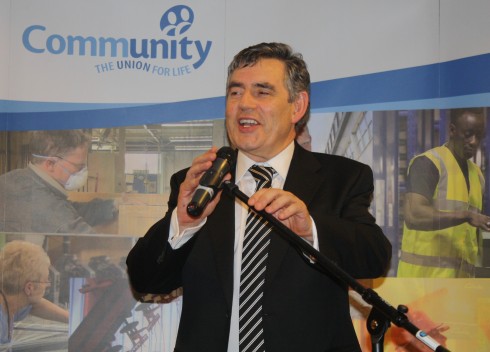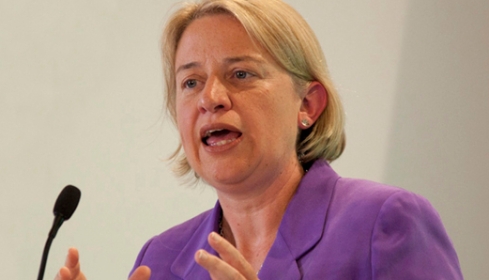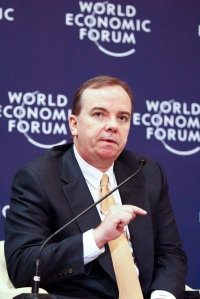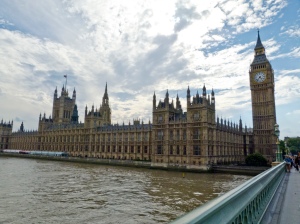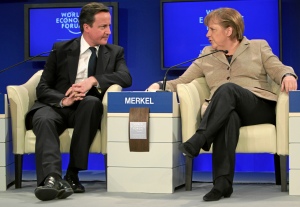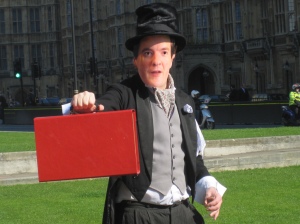Some time between the last weeks of the Scottish referendum campaign, and the announcement mere days after earning their own MP that UKIP would be given a comfy place in next year’s TV election debates, I had an epiphany.
My leanings have always been what might best be described as ‘politically progressive’ – I believe everyone should have access to free public healthcare and I think the burden of funding public finances should come from taxing wealth, not torching the safety net – but in recent years my views have been tempered with an uneasy feeling of futility.
Our government picks on the most vulnerable people in our society and buddies up with the most powerful. Our newspapers and news programmes are full of allusions to disaffected voters, but the parameters of political debate stay the same.
In the days before the fateful Scottish vote on independence the UK’s main political parties, united in their support of a no vote, made an eleventh hour pledge. It promised swift action on granting further powers to Scotland on things like tax, the NHS and more. Gordon Brown set out an ambitious timetable. Once the no vote came in, the promise didn’t quite seem as concrete.
In recent weeks news stories have hinted that the timeframe which the three main parties have committed to is unworkable. One story, by The Scotsman, had several academics warning the timetable was unrealistic to deal with the technical details of devloving powers to Holyrood.
The most important thing to take away from the referendum though, was that 45 per cent of Scots wanted out. Without the pledge this could well have been higher. Glued to social media in the days before the vote I saw a wave of excitement: for the first time I can remember people were given a real chance to affect the increasingly distant political establishment and they were excited about it.
Even after the no vote, yes-voters cheerfully dubbed themselves the 45 per cent. The SNP and the Scottish Green Party saw unprecedented surges in membership; people had woken up.
But for an Englishman watching with interest across the border my enthusiasm quickly ebbed. At its party conference the Labour Party, in the distant past a party of the left with the interests of genuine working people at its heart, proved itself incapable of offering anything but the same old focus-tested fare.
On the face of it some policies announced at the conference were admirable. A mansion tax represents a small step towards a more progressive tax policy and more money for the NHS is always a good thing. An £8 minimum wage is moving in the right direction – though not nearly fast enough since it’s only expected to arrive by the end of the next parliament. Right now people are struggling to get by on low paid jobs as inflation rises.
But the conference was more notable to me for what was not announced. No serious policy announcements on climate change, banking reform or corporation tax. By and large Labour seem to have stopped fighting the tories on welfare and immigration. The party also seems to have accepted the conservative’s narrative of austerity.
James Crace, reporting for The Guardian, said that on arriving at the conference “it was as if the last month had never happened”. The events of the Scottish referendum were not on the agenda.
The party seems unprepared for the radical reform needed to build a fairer society. Any hope of policies that could challenge the Tories’ neoliberal austerity were unfounded.
But did anyone really expect anything else?
I felt powerless. The slow privatisation of the NHS by stealth, public sector pay freezes, rampant corporate tax avoidance and the apparent disappearance of climate change from the news agenda; there is no one in our political establishment challenging these problems.
Then, in October,UKIP bagged their first MP through a by-election in Clacton. UKIP seem to be the darlings of the mainstream media, featured regularly on teatime news programmes and national newspapers.
It is perhaps unsurprising, then, that when it came to announce the plan for next year’s TV debates ahead of the general election UKIP had somehow snuck in there. Of the three debates, UKIP would be invited to one. Whether the broadcasters realised this would be a controversial move or not is unclear.
UKIP are not an anti-establishment party – their leader Nigel Farage is a former trader on the metals exchange educated at Dulwich College, a public School in South London..
The party’s invitation to the top table came only days after getting its first MP. Parties that remain excluded include the Green Party (1 MP), the Scottish National Party (6 MPs), Plaid Cymru (3 MPs) as well as the Northern Irish parties and others.
I suppose the reason I sat down to write this is that I no longer want to feel the futility of settling for a complacent, unresponsive political establishment any longer. This is an establishment that thinks slashing benefits for our society’s most vulnerable while privatising public spaces and subsidising fossil fuels is the way to go.
The Scottish referendum showed me people are not apathetic by choice. If we are given the chance to decide something meaningful we will jump at it. Scotland proved that, regardless of the result. But right now the Scottish referendum is so unique precisely because our terms of debate – the choices and ideas considered realistic and reasonable in our political discourse- have somehow been artificially constrained.
That is my problem with our politics right now.
All argumentative comments are welcome.
